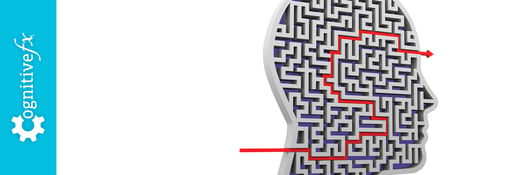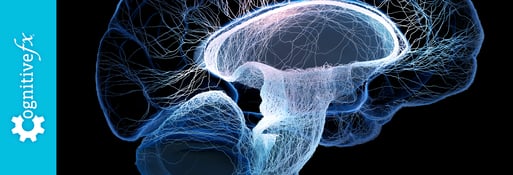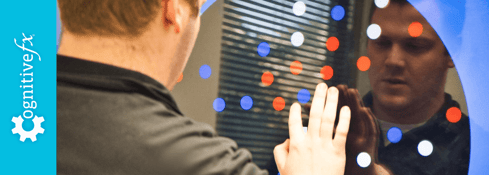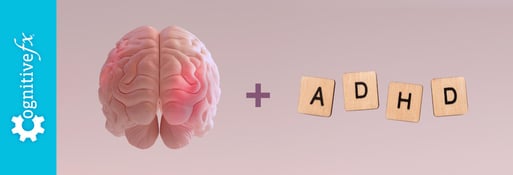Concussions occur as the result of a rapid movement of the head and neck which causes the brain to shift and impact the skull. This sudden movement causes injury to the delicate structures, cells, neurons and blood vessels inside your brain. The impact of the injury can cause both physical and chemical changes in your brain and affect how it functions because it alters the systems in your brain.
Medical professionals usually describe concussions as a mild form of TBI (Traumatic Brain Injury or mTBI) but, even the “mildest” concussions can cause serious effects and impact a person’s quality of life.
Post-Concussion Symptoms (PCS) occur when concussion symptoms like a headache, dizziness, difficulty concentrating, too much sleep, too little sleep, or mood changes remain a few weeks or months after the initial trauma.
Other post-concussion symptoms include:
- Fatigue
- Irritability
- Anxiety
- Ringing in the ears
- Blurry vision
- Noise and light sensitivity
- Decreases in taste and smell
- Memory loss
What is it like for people who live with PCS?
Post-Concussion Syndrome or Symptoms can be extremely disruptive to a person’s life. In addition to having to constantly manage concussion symptoms, which can intensify with normal activity, people with long-term PCS often have to restructure their lives to avoid activities and situations that cause their symptoms to worsen. The symptoms can seriously impact a person’s personal and professional life, family life, the ability to focus, communicate, and be effective at their job.
Having symptoms disrupt their life in various ways can make someone with PCS feel like a burden to their loved ones, because now their lives are also impacted and need to adjust to accommodate PCS. Suffering from these life-altering symptoms can cause someone to become depressed as they and others around them see that they’re no longer the person they used to be. We have a complete concussion guide that explores this experience here.
Who is likely to have PCS?
A study was done by Danish researchers who examined the national records of about 2.8 million citizens who were 50 years of age or older between the years 1999 and 2013. They wanted to see if the severity and frequency of a TBI had a direct association with mental illnesses like dementia. 94.7% of people with dementia had no history of traumatic brain injury (TBI). This means that experiencing brain trauma may increase the risk of developing a degenerative mental illness, and it is not a guarantee it will actually happen. A good example is that age is a risk factor for heart disease, but not everyone 65 or older will have a heart attack. It is likely there are other factors involved that can influence the probability of an individual developing a degenerative mental illness.
With over 10 years of research, we have discovered there is no proven link between the severity of a concussion sustained and the likelihood of developing post-concussion syndrome. It has been discovered that a history of depression, anxiety, post-traumatic stress disorder, significant life stressors, a poor social support system and lack of coping skills does appear to influence the likelihood of developing PCS. Additional research done has noted that females and older individuals are more likely to be diagnosed with post-concussion syndrome.
Recently, new research has surfaced stating if you have had multiple concussions or experienced brain trauma, you’ll most likely develop a degenerative mental illness. We understand this information can be quite alarming for people to learn. We also recognize that more information and research is needed to fully understand what is happening in the brain and the way it responds to injuries, and the connections to other neurological disorders over time.
What is The Outlook For PCS?
Individuals suffering from PCS do recover. However, through the current standard of care, it can’t be predicted as to when this recovery will happen. PCS can last as long as a year or longer, don’t let this sound like there is no hope for improvement possible. Many medical professionals are still beginning to understand the challenges and complications that come with PCS.
At Cognitive FX, we use functional NeuroCognitive Imaging (fNCI)—a brain scan similar to functional magnetic resonance imaging (fMRI)—to diagnose and guide treatment for post-concussion symptoms. To understand why we use fNCI, you need to understand neurovascular coupling (NVC) and its relation to a concussion. NVC is the connection between neurons (brain cells) and blood vessels. Neurons need a lot of energy to do their job. The blood vessels bring that energy to the neuron. When an injury or neurological disorder occurs, the connection between blood vessels and neurons is strained.
Through the fNCI technology and our understanding of the importance of NVC, we have been able to develop a revolutionary approach to treating PCS, EPIC Treatment. Our week-long program is designed to address the dysfunction of NVC along with symptoms experienced by each patient. Because of our innovative approach to concussion treatment, our patients see an average of a 75% improvement in their brain function and 65% improvement from their symptoms at the end of treatment.
Cognitive FX understands the symptoms you are experiencing and can help you with a treatment plan to address and improve the symptoms caused by a concussion or traumatic brain injury (TBI). We want you to know that your quality of life can still improve whether you have been experiencing symptoms for a few months or even years. Don’t give up and know that what you are facing is not impossible to overcome.











